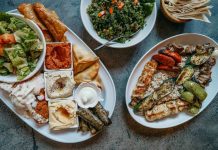
As we age, the risk of fractures, especially hip fractures, becomes a significant concern, leading to disability and even higher mortality rates.
However, a study conducted by Edith Cowan University’s Nutrition and Health Innovation Research Institute in collaboration with the University of Western Australia has suggested that a vitamin K1-rich diet may help reduce the risk of fractures in older women.
The study focused on nearly 1400 older Australian women over 14.5 years, exploring the relationship between vitamin K1 intake and fracture-related hospitalizations. The findings revealed promising results.
The Power of Vitamin K1
Women who consumed more than 100 micrograms of vitamin K1 daily, equivalent to about 125g of dark leafy vegetables or one to two servings of vegetables, were found to be 31% less likely to experience any fracture compared to those who consumed less than 60 micrograms per day, which is the current recommended intake in Australia for women.
Regarding hip fractures, the results were even more significant, with the high vitamin K1 intake group reducing their risk of hospitalization by almost half, or 49%.
Dr. Marc Sim, the lead researcher, highlighted that these results were independent of various established factors affecting fracture rates, such as body mass index, calcium intake, Vitamin D levels, and existing diseases.
The Mechanism Behind Vitamin K1
Dr. Sim explained that vitamin K1 plays a critical role in the carboxylation of vitamin K1-dependent bone proteins like osteocalcin, which is believed to improve bone toughness.
Additionally, vitamin K1 may promote bone health by inhibiting certain bone-resorbing agents.
How to Incorporate Vitamin K1
Dr. Sim recommended a daily intake of over 100 micrograms of vitamin K1, emphasizing that it can be easily achieved through a diet rich in foods like spinach, kale, broccoli, and cabbage.
Consuming 75-150g, equivalent to one to two servings of these vegetables, can provide the necessary vitamin K1 intake.
These findings align with public health guidelines advocating higher vegetable consumption, including one to two servings of green leafy vegetables.
So, by incorporating vitamin K1-rich foods into your diet, you may be taking a significant step toward reducing the risk of fractures, especially as you age.
Vitamin K1-Rich Foods:
- Vegetables: Kale, spinach, broccoli, green beans
- Fruits: Prunes, kiwi, avocado
By adding these foods to your meals, you can support your bone health and potentially reduce the risk of fractures later in life.
If you care about bone health, please read studies that plant-based diets can harm your bone health without these nutrients, and this bone problem may strongly increase COVID-19 death risk.
For more wellness information, please see recent studies that too much of this vitamin may increase your risk of bone fractures, and results showing this type of exercise may protect your bone health, slow down bone aging.
The research findings can be found in Food & Function.
Copyright © 2023 Knowridge Science Report. All rights reserved.



